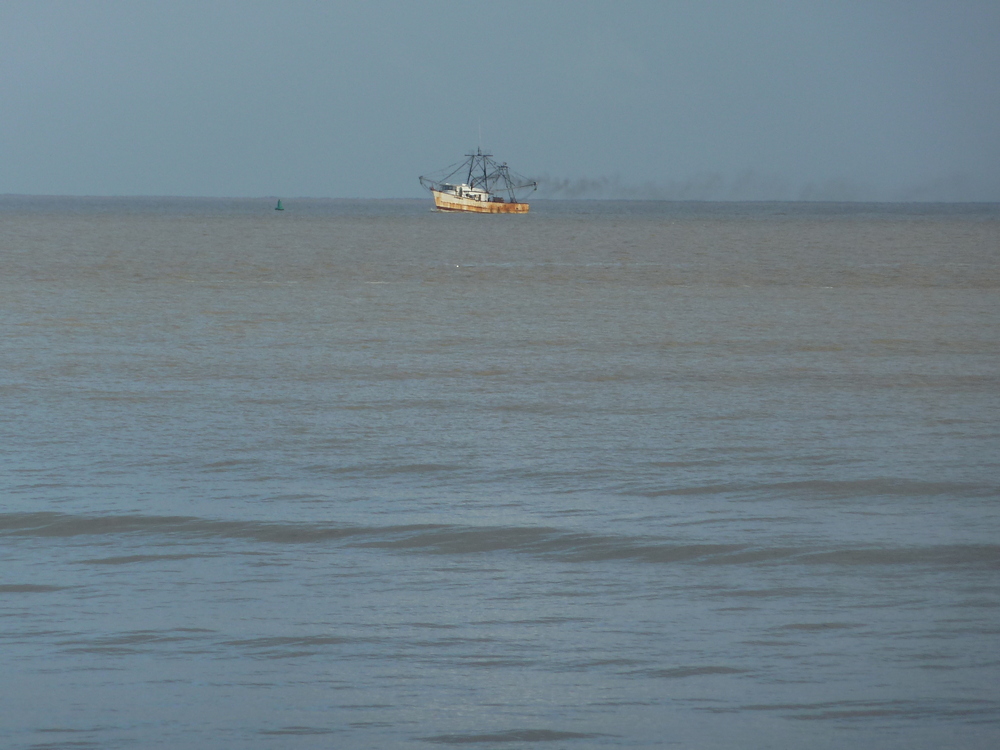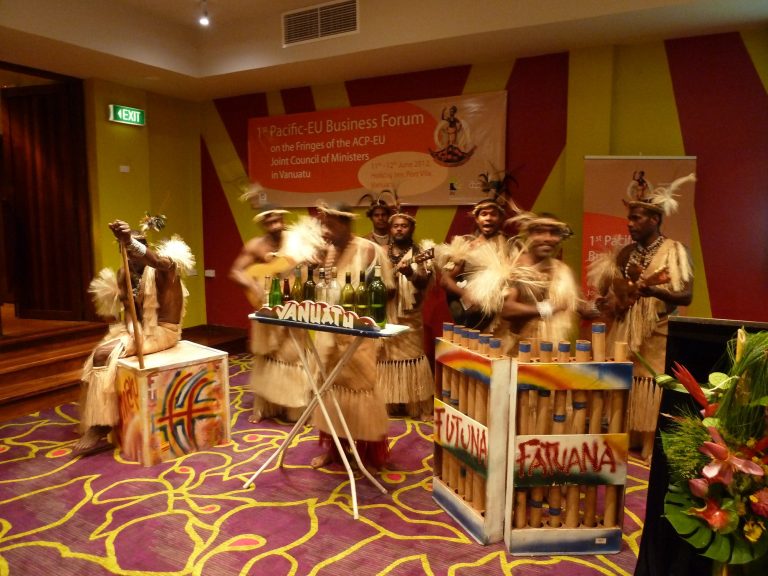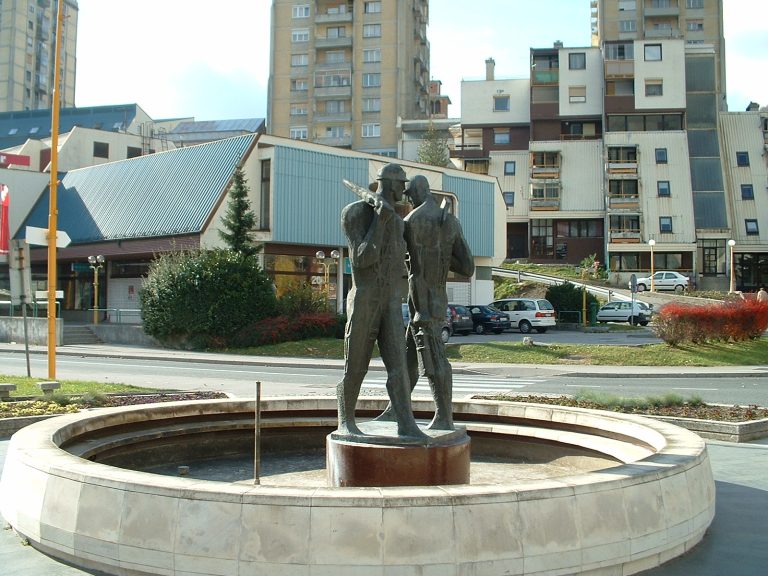
In spite of more than three decades of development of Vessels Monitoring System (VMS), and efforts to manage our oceans sustainably, globally 75% of industrial fishing vessels, according to Global Fisheries Watch (GFE), are not tracked.
Let’s focus on the relationship between politics and technology in the following lines. The first question that arises is why so many problems in implementing the VMS system? Why are there still many countries and fishing fleets without VMS? Even where the devices are installed, abuse is high and the cooperation of control authorities between countries is poor. Even the vertical integration of components could have been better. The shortest answer would be, the system contains too many links in the chain that can crush.
Things got complicated
Monitoring, control and surveillance (MCS), and especially tracking of vessels with electronic means and electronic management of the catch in international waters, even in national waters, where artisanal fishing boats operate, is poisoned with inconsistencies throughout the whole system. We have in mind horizontal and vertical integration of data. At the beginning of the system there is the key component, vessels tracking device with satellite and GPRS data transmission, satellite AIS data transmission, and the newest, Sentinel satellite images. Vertically up, the system has to gather data, ideally from the fishing net to the customer’s table.
The components in the entire chain are so strongly dependent on each other that even if a certain component stands out for its technological solutions, for example top-of-the-line equipment for monitoring the operation of fishing nets, or software for sending, receiving and analysing data, if there is also no quality transponder, which is able to transfer this data; or no one looks at the data and takes no action, such a component is practically unused. In other words, someone has to integrate the system. But since manufacturers tend to produce only certain components in the whole chain, it is up to the integrator to do it. But here things get complicated, starting with regulations and up to the lether, ending with political will. That’s why we haven’t noticed effective integration so far.
Having in mind current problems of the system, some countries tried to compensate shortages or absence of VMS on fishing vessels, with AIS data. But AIS is even more subject to abuse. Introduced for other purposes, AIS should only be an auxiliary system on fishing vessels, but in many cases it is the only tracking device installed on fishing and escort (transshipment) vessels.
Better control system
A big step forward was only made when Global Fisheries Watch (GFE) integrated Synthetic Aperture Radar (SAR) images of the Earth’s surface and offered free map visualizations, data and analysis tools. With the help of the latest artificial intelligence, we got an incomparable better control system.
With the help of the latest artificial intelligence, we got an incomparable better control system.
However, despite this, the system is not developing as expected. The biggest problem is weak political will. The cooperation of countries on both bilateral and multilateral levels is still too weak, cooperation with the port authorities is too weak, transshipment is too widespread, there is too much bycatch and too much illegal, unreported and unregulated (IUU) fishing. Even more, high sea fishing is practically without effective governance and control.
High sea fishing is practically without effective governance and control.
It is connected with the fact that current tracking and monitoring technology has reached the final point. A lot of VMS devices installed, are obsolete and need to be replaced. Deep change in strategy, new global agreements and more political will, will be needed as well. How to proceed?
First: We have problems with technology
Although in recent years the development of technology has enabled new solutions, there are mainly two dangers from the technological side:
1. Concentration of the market in hands of a few large producers. Concentration often represents an obstacle to faster development. Monopolists do not want to develop too fast because it would threaten their market share. They are characterized by rigidity and a lack of strategy and vision, but they usually compensate this with good political connections. High sea fishing is practically without effective governance and control.
2. Smaller manufacturers are more flexible and have better knowledge of new technologies, but, unlike large ones, they mainly face the following problems:
– They have poor financial strength, lower brand value, more expensive logistics;
– They face a lack of a stable environment for long-term work;
– They have poor contacts with policymakers and little knowledge of political processes;
– They have a worse overview of global development in the industry;
– They don’t know what others have developed;
– They have insufficient knowledge about what impact their product will have on the entire system and whether the integration will be successful, especially because they do not have enough resources for effective testing;
– Poor exchange of information with other stakeholders;
– Big disadvantage of small manufacturers is that they have neither the opportunity nor the interest to use all available knowledge.
Add to all mentioned above the fact that the dialogue between policymakers and the economy is too poor. There is also a lack of technical knowledge in politics. There is also often no continuity in politics.
All these shortages, especially insufficient help from state institutions, led to a boom in civil initiatives. At first glance, this is positive, but the growth in the number of civil initiatives means the absence of effective state mechanisms. The positive thing about the activation of civil initiatives is that knowledge, capable experts and financial resources, which companies or public institutions are unable to activate, return to the sector through other doors.
The growth in the number of civil initiatives means the absence of effective state mechanisms.
Above all, it is important that civil initiatives raise public awareness. Therefore, we hope that civil initiatives will become the decisive factor that will encourage politicians to act more decisively. Global Fishing Watch has already proven that with the right approach, cooperation between civil initiatives and politics can be possible and fruitful.
Second: New fisheries tracking strategy is needed
New approach and new strategy are though extremely necessary. The fact is that most countries have already established Vessels Monitoring System (VMS) or other tracking methods in the last twenty years. In spite of the fact that these systems are frequently ineffective, there are fewer and fewer opportunities to install complete VMS. Therefore, we expect that the biggest business opportunity will be in the replacement of outdated systems.
However, it will be not possible without political support. Key institutions are FAO, Regional fisheries organizations (RFO) and regional economic integrations (European Union and economic integration on all other continents). Actions by large fishing countries will also be important. We expect countries with large fishing fleets to do more to address the mentioned problems. Here we mainly have in mind China, Taiwan, Thailand, South Korea, Spain, Italy, Poland, and other countries with large fishing fleets.
With better cooperation between countries, we can expect:
1. More successful standardization and better compatibility of software and cooperation between satellite systems (mainly Inmarsat, Orbcom and Iridium).
2. Better vertical integration of tracking and reporting. Artificial intelligence can be of great help in this, which will include additional functions more efficiently than before, from tracking the operation of nets, winches, cameras, etc. The goal of such integration is to track the catch all the way from the net to the final customer.
3. International agreement on transparent sharing of positional data.
Third: Political problems
Policymakers will have to establish a new work environment, shorten the political processes and endless debates that inhibit sufficiently rapid progress. Policymakers will have to improve and globalize the legal system and introduce more effective instruments to fight crime. For example, in 2014, Interpol published the Study on fisheries crime in the west African coastal region, but after a decade experts note that the situation is not significantly better.
Policymakers will have to establish a new work environment, shorten the political processes and endless debates that inhibit sufficiently rapid progress.
Faster development in technology is mainly hindered by the following facts:
- Large manufacturers, who have a larger share of the market, do not invest in faster technological progress on their own initiative.
- Small producers usually have good technological solutions, but too often they only depend on their own development resources.
- Companies lack vision and long-term strategy.
- There is a lack of quality engineering staff.
- Lack of competent managers with vision and knowledge of what a successful long-term strategy should look like.
- Poor ability to absorb knowledge.
- Companies are primarily oriented towards short-term results, so politics must take control of long-term projects.
- Political processes are too long, bureaucratic hurdles are too high, and implementation of laws and regulations is either too slow or non-existent (often a decade or more). We already have a lot of data (and instruments like GFW Vessel Viewer) on the history of ship movements, but this data remains largely unused.
New fisheries control strategy
The new fisheries control strategy should include the following measures:
- Pay special attention to changing the old mentality among stakeholders.
- A change in priorities, in which sustainable fisheries would come first, preservation of traditional artisanal fisheries and local economies in second place, and only then commercial interest.1
- Accurate control of catch from the net to the consumer’s table.
- Increase in the number and dimensions of marine sanctuaries and protected zones. Total ban of fishing in certain zones is a good measure, but not enough, having in mind reports of massive illegal fishing in these waters and lack of control and surveillance. Just to name fishing near Galapagos islands and other sanctuaries and marine protected arreas, or fishing near two hundred miles Argentinean economic zone, where disabling tracking devices is more common, obviously so that they can illegally fish imperceptibly in prohibited waters.
- Additional protection of fishing areas for artisanal fisheries. The collapse of artisanal fisheries is one of the causes of the impoverishment of the local economy and migration.
- Prohibition of certain types of nets or shortening of the fishing season. First such candidate would be deep sea bottom trawling. Secondly, new fishing vessels have such strong power plants that we should think about shortening and further restrictions of fishing nets.
- Underreported bycatch. AMSC (Australian Marine Conservation Society) reports that “bycatch and threatened species interactions are being under-reported in Australia’s highest-risk fisheries.We need cameras on boats to get an accurate picture of what our fisheries are catching…”
- Watterproof data transfer. VMS or any other tracking data is of no use if there are no reports, modified or fake reports, if port authorities are “blind” or corrupt, if there is no access to long-term data from fishing vessels or transshipment vessels. Probably a total ban of transshipment or landing untracked catch would be the most effective measure.
- Tracking of fishing gears, especially so called ghost gears.
- Consideration of how to use financial resources more efficiently.
- Change in human resources policy in public institutions, where there are often staff who are insufficiently qualified, who have other interests and for whom the protection of the sea is not their first priority.
- It is necessary to improve the functioning of devices, reporting, analysis and, above all, sanctions.
- It is necessary to improve the support system for the development of new devices and solutions and ensure their timely upgrading.
- To improve working conditions on ships and prohibit the departure of ships that violate labor regulations and other laws.
- Additional studies and changes in fish farming, which heavily pollutes the environment. Example: Kiribati public tender for Development of a Lagoon and Coastal fisheries pollution and Seafood toxin monitoring and Management plan, financed by the World Bank.
- To bring order to public tenders. Manipulations with public tenders are common. For example, some invitations to tenders are open for only three days, which leads to the conclusion that the provider is already selected.
What we expect from entrepreneurs
The decline of fisheries is a political issue. The new policy will have to solve mainly two components of this process. The first is the strategy of stable technology development. Another is the issue of stopping the depletion of the sea, which has disastrous consequences for local economies, not to mention the negative consequences for the entire ecosystem. Fishing will not solve the problem of feeding a growing population. Local economies based on artisanal fishing are collapsing, which in the extreme leads to armed conflicts and global migration.
Local economies based on artisanal fishing are collapsing, which in the extreme leads to armed conflicts and global migration.
Companies will have to contribute their share in the new strategy and find answers to the following questions:
- Strengthening of personnel and improving the absorption of knowledge. Without changes in the regulations in the sector, companies will not be able to improve their personnel structure. Small companies will have to put more pressure on the responsible institutions to introduce mechanisms that will make it easier for them to get highly qualified engineers, as well as capable managers with vision and knowledge of world markets, both global and local economies.
- Transfer of technological solutions into practice more effectively and faster.
- Policymakers will need to better protect innovative companies. In the past, it has been shown that technologically innovative companies are not the ones that reap the most fruits of their work, but those that come after them and that have great financial strength and other conditions, with which they then build a monopoly. In order to prevent this, companies must influence politics to keep a larger fair share of the pie, which will enable more stable operations and investment in progress.
- A better marketing plan, regularly informing, and raising awareness between all stakeholders in the fishery control process, especially policy and law makers and professional public.
- Good cooperation with consulting agencies in the field of Monitoring, Control and Surveillance (MCS).
- Regular presence at fisheries and marine electronics fairs (which is not cheap, especially for smaller companies) as an importasnt place for knowledge exchange;
- Building of wide network of service partners, especially in large ports (fishing and non-fishing);
- Good cooperation with ship designers, constructors and shipyards. This is an area that has been too neglected.
- Finding a way to closely cooperate with public and private institutions in the field of science and development, research agencies, private financiers, civil society…
- Small businesses generally avoid cooperation with multilateral organizations because it does not bring an immediate positive result on revenues. Therefore, they often limit themselves only to bilateral cooperation, if this can help to win the project. But the result of such work is therefore based more on chance.
- Improving cooperation with national and international bodies: UN FAO, EU DG Mare, NNOA Fisheries, and regional fisheries monitoring organizations (RFMO) which already have a long history, like Northwest Atlantic Organization (NAFO), General Fisheries Commission for the Mediterranean (GFCM), Western and Central Pacific Fisheries Commission (WCPFC), the Pacific Islands Forum Fisheries Agency (FFA) ….
- Exchange of experiences with established RFMO and Regional fisheries monitoring centers (RFMC) brings long-term benefits. Others, especially in Africa and Latin America, which are still in the initial stages of effective organizing, will gladly accept cooperation with companies that develop new solutions.
Cooperation with RFMO is important
Cooperation with RFMOs is important because:
- They cover many countries;
- Some RFMOs, such as in the Mediterranean GFCM, RFMOs in Oceania and North Atlantic, have a long tradition and are also well organized and are a reference for other regional organizations.
- They have the largest number of experts concentrated;
- They are financially stronger and can therefore represent a close training ground for new solutions.
- They have the power to make decisions and exert pressure on policymakers.
As we have seen in the text above, there are many problems. So we have tried to indicate in which direction we need to look for solutions. Especially because we have major environmental problems, migration problems, and also many open inputs posed by rapidly developing technology, it is high time for the international community to start taking marine problems more seriously.
Executive Summary: Future of Fisheries Management and VMS Technology
Despite over 30 years of technological advancement, 75% of industrial fishing vessels remain untracked, exposing vast gaps in monitoring, control, and surveillance (MCS). The article explores why, despite the availability of advanced tools (e.g., AIS, VMS, SAR, AI-driven analysis), implementation is weak. It emphasizes systemic failures—political inertia, fragmented technological ecosystems, monopolistic markets, and underfunded innovators—that undermine marine sustainability efforts.
Key Problems Identified
1. Technological Integration Gaps
- VMS systems are often outdated, abused, or poorly integrated.
- AIS is misused as a primary system, despite vulnerability to manipulation.
- Modern tools like SAR and AI (via GFW) are underutilized or not scaled globally.
2. Weak Political Will
- National and multilateral political institutions fail to enforce marine protection.
- Bureaucracy delays reforms; many agreements lack teeth.
- Corruption and lack of continuity in political leadership hinder progress.
3. Market Concentration in VMS Technology
- Few large companies dominate the market, stifling innovation.
- Small, innovative firms lack funding, market access, and political support.
- Integration between components is poor due to proprietary systems and misaligned incentives.
4. Civil Society as a Stopgap
- Civil initiatives (e.g., GFW) help fill governance gaps.
- However, their growth also signals institutional failure in public policy.
5. Social & Economic Impacts
- Artisanal fisheries are collapsing due to illegal fishing and policy neglect.
- This contributes to poverty and migration in coastal communities.
- Overfishing and bycatch continue to threaten marine biodiversity.
Strategic Recommendations
1. System Modernization and Integration
- Replace obsolete VMS systems and ensure interoperability.
- Use AI to trace catch from net to table, integrating cameras, net sensors, and vessel transponders.
- Ban or tightly regulate transshipment, a key IUU enabler.
2. Political Reform and Regulation
- Build global political consensus through RFMOs and the FAO.
- Streamline bureaucratic processes for faster implementation.
- Introduce binding multilateral agreements for data sharing and enforcement.
3. Empowerment of Civil Society and Small Innovators
- Provide technical and financial support to small tech providers.
- Encourage collaboration with universities, R&D agencies, and NGOs.
- Improve marketing, access to tenders, and participation in global marine forums.
4. Industry and Institutional Responsibilities
- Reform public sector hiring to prioritize marine conservation expertise.
- Prevent corrupt tender practices (e.g., 3-day open calls).
- Improve conditions and labor laws for fisheries workers.
5. Expand Marine Protections
- Enforce existing marine protected areas with real-time monitoring.
- Implement bans or stricter controls on destructive methods like bottom trawling.
- Provide economic and legal protection for artisanal fishers.
Why RFMOs Are Critical
Regional Fisheries Management Organizations are key because they:
- Coordinate multinational enforcement.
- Pool resources and expertise.
- Set technical and legal standards.
- Act as platforms for testing and scaling solutions.
Conclusion
The future of sustainable fisheries hinges on breaking the deadlock between politics, technology, and market interests. Without decisive leadership, updated tools, and inclusive governance, the ocean’s resources—and dependent economies—face irreversible damage.
The next phase must prioritize:
- Sustainability over short-term profits.
- Traceability over opacity.
- Local resilience over global exploitation.
- “…there is a need to manage fisheries for wider societal benefits, rather than just accounting for their commodity value, to achieve broader goals related to resilience to climate change (climate change objective), biodiversity conservation, and sustainable development (sustainability objective).” Look in: The future of marine fisheries management and conservation in the United Kingdom: Lessons learnt from over 100 years of biased policy. Marine Policy, Vol. 147. January 2023. https://www.sciencedirect.com/science/article/pii/S0308597X22001221#bib35 ↩︎


